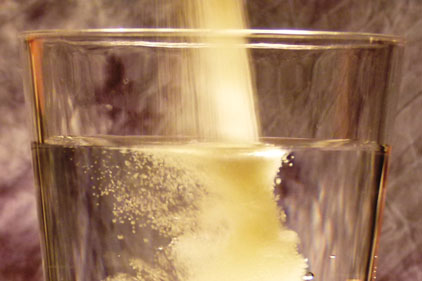Sweeteners Studied

"Increases in fructose consumption have paralleled the increasing prevalence of obesity, and high-fructose diets are thought to promote weight gain and insulin resistance. Fructose ingestion produces smaller increases in circulating satiety hormones compared with glucose ingestion, and central administration of fructose provokes feeding in rodents, whereas centrally administered glucose promotes satiety," according to background information in the article. "Thus, fructose possibly increases food-seeking behavior and increases food intake." How brain regions associated with fructose- and glucose-mediated changes in animal feeding behaviors translates to humans is not completely understood.
Kathleen A. Page, M.D., of Yale University School of Medicine, New Haven, Conn., and colleagues conducted a study to examine neurophysiological factors that might underlie associations between fructose consumption and weight gain. The study included 20 healthy adult volunteers who underwent two magnetic resonance imaging sessions in conjunction with fructose or glucose drink ingestion. The primary outcome measure for the study was the relative changes in hypothalamic (a region of the brain) regional cerebral blood flow (CBF) after glucose or fructose ingestion.
The researchers found that there was a significantly greater reduction in hypothalamic CBF after glucose vs. fructose ingestion. "Glucose but not fructose ingestion reduced the activation of the hypothalamus, insula, and striatum-brain regions that regulate appetite, motivation, and reward processing; glucose ingestion also increased functional connections between the hypothalamic-striatal network and increased satiety."
"The disparate responses to fructose were associated with reduced systemic levels of the satiety-signaling hormone insulin and were not likely attributable to an inability of fructose to cross the blood-brain barrier into the hypothalamus or to a lack of hypothalamic expression of genes necessary for fructose metabolism."
Looking for a reprint of this article?
From high-res PDFs to custom plaques, order your copy today!




